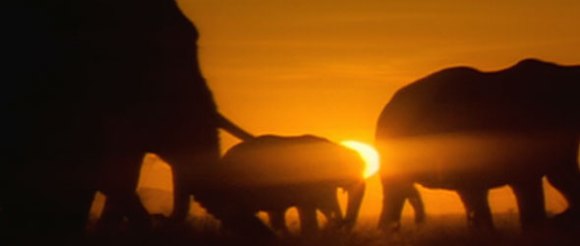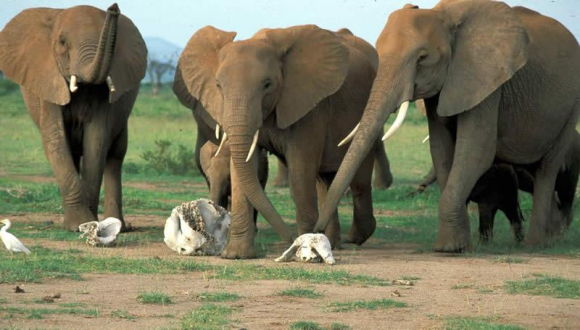It seems like the world is finally waking up to this fact: elephant poaching is not just something only the eco-crazies care about. As reported in the Huffington Post article “Blood on Your Hands, China: The Link Between Ivory Consumption and Al Shabaab”:
Al Shaabab is funding a massive 40% of its operations through the illegal ivory trade. So, to put this in crude figures - if you are an ivory consumer you helped to fund 40% of the killers that entered Westgate on Saturday, which all things being equal accounted for around 25 of the estimated 62 people murdered.
Elephantopia is about spreading awareness, opening up the world’s eyes to the grim future facing elephants. My hope is that people who may not live in Africa or those who currently “don’t care” about this issue because they think there are bigger and more pressing world issues to care about, will realize that elephant poaching directly impacts those other “bigger world issues.”
While living in Africa, my husband and I were introduced to the concept of “Ubuntu” - “a person is not a person without other persons.” Or more simply put, we are all connected. What happens to one of us, affects all of us. Poaching is a great example of this.
Poaching kills elephants and is projected to wipe out the entire species in Africa by 2025 - is it estimated that one elephant is poached every 15 minutes.
Poaching kills rangers who work in the field day and night protecting elephants & other natural resources - the poachers these rangers fight are equipted with night vision goggles, machine guns, and other heavy artillary. In the last ten years, more than 5,000 rangers have been killed. Every tusk costs a life.
Poaching funds terrorist organizations - is considered the new “blood diamond” for funding illegal operations around the world, raking no 4 in the top 5 most dangerous illegal criminal activities (along with drug trafficking, counterfeiting, human trafficking and illegal arms trade)
Poaching destroys ecosystems - the elephant is a keystone species which means thousands of other animals and plant species rely on elephants for continued growth & sustainability. Without the elephant, there will be a negative chain effect that will directly impact humans and food sources.
Poaching hurts economies that rely on tourism for a major source of income - for example, a large proportion of Kenya’s tourism centres around safaris and tours of its great National Parks and Game Reserves. According to Kenya’s First Lady Kenyatta, “The decline in elephants may affect Kenya’s tourism industry, which employs 300,000 people…” The country, home to game parks including the Maasai Mara, counts tourism as its largest foreign-exchange earner, after tea. About 1.8 million tourists visited Kenya last year, generating 96 billion shillings ($1.1 billion).
Poaching is inhumane - usually the elephant is still alive while it’s tusks are being sawed out of it’s head (one third of the tusk is embedded in the skull)
Poaching isn’t just something happening in a far away country to an animal that doesn’t really matter. No, if you care about poverty, then you should care about poaching. If you care about terrorism, then you should care about poaching. If you care about illegal criminal activities, then you should care about poaching. If you are human, then you should care about poaching and the negative effects it has on other humans, economies and ecosystems around the world. We live in a global economy with a global supply chain. Stop fooling yourself - what happens in Africa will directly impact you in some way, shape or form.
It’s time to wake up the world - to put an end to poaching. It’s time to stop talking and start asking: what are you going to do about it?
I plan to move forward - to march for the elephant October 4, to continue to raise awareness through this blog, to work with organizations around the world to support ranger & elephant care, to keep dreaming and envisioning a harmonious future for elephants and humans. In the words of Nelson Mandela:
I am fundamentally an optimist….Part of being optimistic is keeping one’s head pointed towards the sun, one’s feet moving forward.

Like this:
Like Loading...



